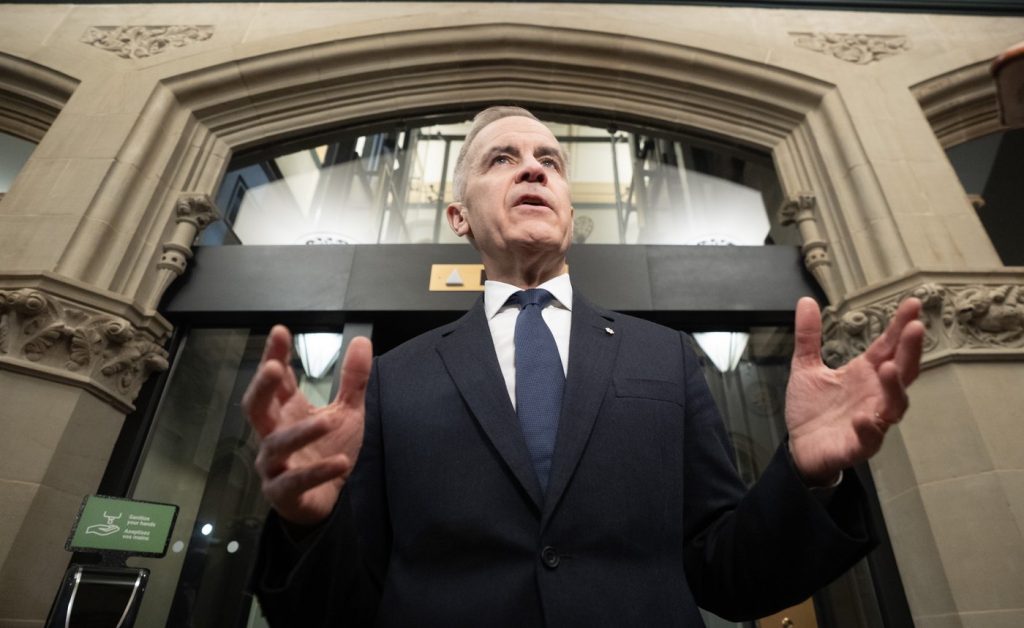In recent developments, Liberal Leader Mark Carney resumed his campaign activities, particularly focusing on the ongoing implications of U.S. President Donald Trump’s latest tariffs. After a brief detour to Ottawa for discussions concerning these tariffs, Carney is expected to be in Montreal today. He participated in a virtual meeting with Canada's premiers, where they discussed responses to the tariffs announced by Trump.
On April 2, 2025, Trump unveiled a 10 percent baseline tariff on imports from most countries. This announcement included a comprehensive list of varied tariff levels that will impact dozens of nations. However, a fact sheet released by the White House specified that goods imported under the Canada-U.S.-Mexico Agreement (CUSMA) will remain exempt from these new tariffs. Nonetheless, a previously enacted 25 percent tariff on automobile imports is set to begin today, further compounding already existing tariffs on steel and aluminum imports from Canada.
The ramifications of Trump's tariff policies are manifesting significantly within the Canadian auto industry. For instance, Unifor Local 444, which represents workers at Stellantis’ Windsor Assembly Plant, recently announced that the facility will undergo a two-week shutdown starting April 7, 2025. Union officials acknowledged the shutdown was anticipated but attributed it directly to Trump’s recent tariff announcement.
Several experts have weighed in on the challenges Canadian companies face when attempting to alter their supply chains in response to U.S. tariffs. While the idea of switching supply sources may seem straightforward, the reality is far more complex. Many businesses have developed tightly woven supply chains over decades, shaped by previous trade agreements and sectoral specialization. As a result, shifting these networks involves considerable hurdles, including transportation and labor costs, resource availability, manufacturing capacity, and potential market saturation. The forestry sector, in particular, faces unique challenges due to the low value-to-volume ratio of lumber exports when compared with other commodities.
In a separate, but equally significant development, organizers of the “Freedom Convoy,” Tamara Lich and Chris Barber, are set to hear a verdict later today concerning their involvement in the mass protests against pandemic health measures in Ottawa over three years ago. Both Lich and Barber face charges including mischief, intimidation, and counseling others to break the law related to the protests that attracted thousands to the capital for a three-week duration in 2022. The trial concluded in September after an exhaustive 45-day investigation, during which Justice Heather Perkins-McVey noted the complexities involved in reaching a verdict due to the considerable evidence and legal arguments presented.
Another pressing concern, highlighted by recent research, involves the impact of climate change on whale migration. The Canadian lead author of a study on the migration habits of humpback whales has issued warnings about the potential threats posed by climate change to this species. The study, published in the journal Scientific Reports, tracked 42 tagged whales off the coasts of Central and South America, revealing that these mammals rely on long-term memory and environmental cues, including sea temperature, to time their annual 10,000-kilometer migration to the Antarctic feeding grounds. However, McGill University biologist and associate professor Virginie Millien expressed concern that while the whales seem to be adjusting their migration timing, the rapid pace of climate change may ultimately outstrip their ability to adapt.
As the implications of international trade policies and environmental changes unfold, the interconnected nature of these issues emphasizes the need for coordinated responses and careful consideration of their far-reaching consequences.










